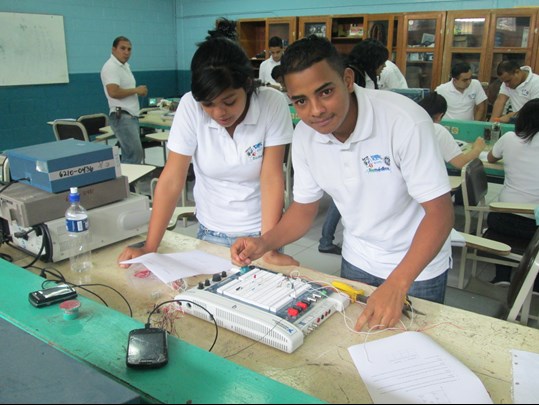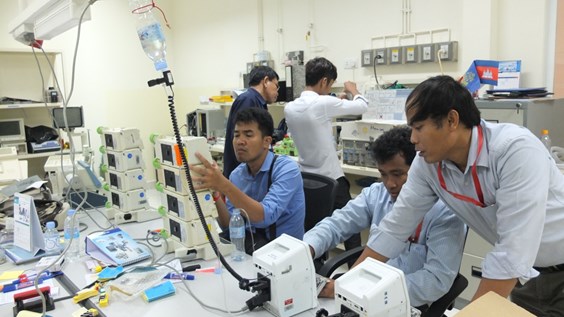Search EWH.Org
Training and Workshops
Curriculum

The three-to-four year BMET Training program features needs-based curricula tailored to each country in partnership with Duke University’s Developing World Healthcare Technologies Lab, headed by Dr. Robert Malkin.
Students learn about healthcare technology management, computer skills, principles of medical device operation, and professional development. They are taught a broad base of skills that apply to the maintenance and repair of numerous types of biomedical equipment. Students alternate between intensive classroom learning and hands-on, mentored practice in their hospitals. Through this method, local hospitals begin reaping the benefits immediately after the first six-week session of classes finish.
We work closely with each country’s academic institutions and ministries of health to accredit and certify our programs so that when students complete their training, they may receive accredited degrees and officially recognized certifications.
In addition, we encourage the development of professional societies of biomedical technicians and engineers to further ethical development, career guidelines, and best practices, as well as provide a network of support and information exchange.
Centers of Excellence

Centers of Excellence are state-of-the-art biomedical workshops designed to give BMETs fully-equipped workspaces to repair biomedical equipment and to train future technicians. Through Centers of Excellence, BMETs and students have access to training in management and proper procedures, up-to-date information, and the sophisticated testing, measurement, and diagnostic tools they need to work effectively with modern medical equipment.
EWH has built Centers of Excellence at Kintampo, Mampong, Axim, Apom, and Sunyani Regional Hospital in Ghana; at Calmette National Hospital in Cambodia; and at Lagos University Teaching Hospital in Nigeria. We believe these Centers of Excellence improve the sustainability of our training programs and help countries’ healthcare systems meet the World Health Organization’s recommended standards of care.
We look forward to building new Centers of Excellence with our partners in the future.